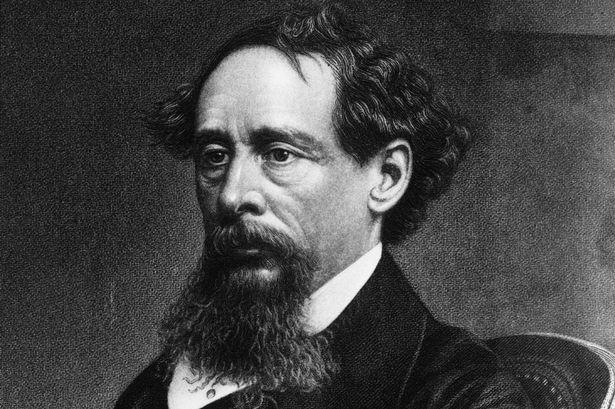Charles Dickens: The Immortal Crusader of Social Justice

Simon Gusev ‘20 / Emertainment Monthly Staff Writer
In the winter of 1842, Charles Dickens arrived at Boston harbor from foggy Albion to celebrate his 30th birthday in the company of his wife, Catherine. The writer bathed in the rays of glory. His works pleased critics, perturbed politicians, and begot trends among different social classes. It would seem all this happened a long time ago, but why are we still reading Dickens today?

Charles John Huffam Dickens, a British novelist, journalist, editor, illustrator, and social commentator, was born on February 7th, 1812. Dickens wrote beloved classic novels such as A Christmas Carol, Oliver Twist, David Copperfield, Nicholas Nickleby, Great Expectations, and A Tale of Two Cities. The great Victorian is remembered as one of the most important and influential writers of his time and admired by literary classics like Dostoyevsky and Tolstoy. Among his accomplishments, he has been praised for providing a realistic image of the 19th-century underclass, bringing to attention the mustiness of contemporary social order.
Despite his literary success and subsequent notable social positions, many don’t realize that Dickens did not always live in comfort and had experienced that same hardships himself. When he was 12, his father pled guilty to not paying his debts and was sent to prison. This childhood imprint of incomplete family permanently remained in the author’s soul and is reflected in his novels, Oliver Twist, David Copperfield, and Nicholas Nickleby. Families in Dickens’s works are often careless, forsaking their children to their fate in workhouses and orphanages.
These unattractive portrayals directly reflected the writer’s negative attitude towards his own family members as, for instance, his father haunted him for money once Dickens became successful. The writer once said, “Why was I ever a father! Why was my father ever a father!” Soon after his father left, young Dickens started working at a blacking factory to support his family but was earning less than a dollar fifty a week. This early experience echoed in the writer’s strong concern for the welfare of the underclass and unavailability of education for children from unsecure families.

From a very young age, Dickens possessed an aspiration for glory, the path to which was thorny. The writer’s career began at the age of 16, when he became a freelance reporter, covering local courts. Dickens used to wander around the city of London gathering working-class stories that would serve as an inspiration for his future works like Bleak House. In December of 1833, Old Monthly Magazine published Dickens’s first story “A Dinner at Poplar Walk” anonymously. The writer did not get paid, but the editor of Morning Chronicle took note of the story. The editor suggested Boz, Dickens’s early pseudonym for publications, write notes and sketches of London life, which Dickens knew relatively well from his journalistic experience. In 1836, Dickens put together his observations and wrote Sketches by Boz, the writer’s first book. A legendary writing career began.

Probably every child has heard of A Christmas Carol. At first read, it is an unremarkable good old Christmas story, however, it raises awareness of social injustice. The novel was written after Dickens visited the streets of Manchester, England, where he witnessed the horrible suffering of poor men and women. The plot was intended to make citizens think about poverty issues. The publication of the novel brought debates into the British Parliament, which eventually resulted in altering labor laws and lowering prices on bread. By virtue of Dickens’s efforts, this social revolution brought hope for the poor, not only in England but all over the world as other countries enacted similar laws shortly after.
Many generations of children grew up with Charles Dickens’s stories. Despite the gloomy motives and complex writing style for modern children, the writer’s works are full of useful moralities, like kindness and compassion for one’s neighbor. These support the existence of a healthy society. In his books, the writer also investigates the very depth of human psychology through detailed descriptions of the characters’ personalities and their behavior. Therefore, one has a chance to learn from the experiences of Dickens’s wonderful personages as if of their own. In addition, the writer shows that human nature remains unchangeable in the presence of technological progress. Thus, hardships, warmth, and evil from his works are still actual themes for humankind. But the main reason why we still read Dickens is that he focuses on people instead of place or time.
Over a century after the writer’s death, Iosif Brodsky wrote in his Nobel Prize speech, “I believe–not empirically, alas, but only theoretically–that for someone who has read a lot of Dickens to shoot his like in the name of an idea is harder than for someone who has read no Dickens.”
There is no doubt, Dickens’s works continue to exist for a greater good of people and society.